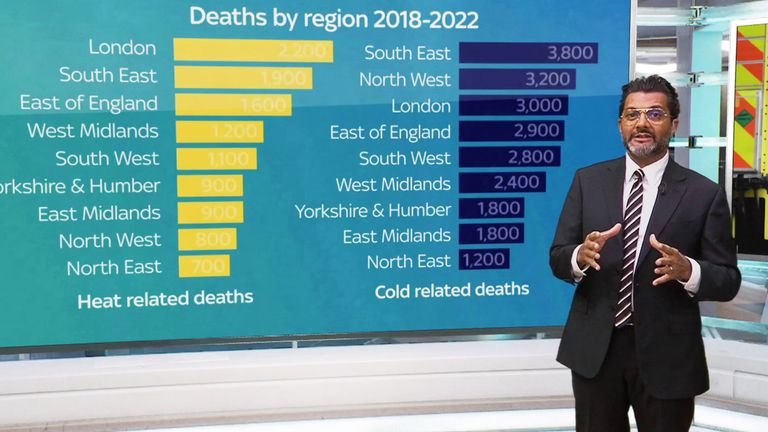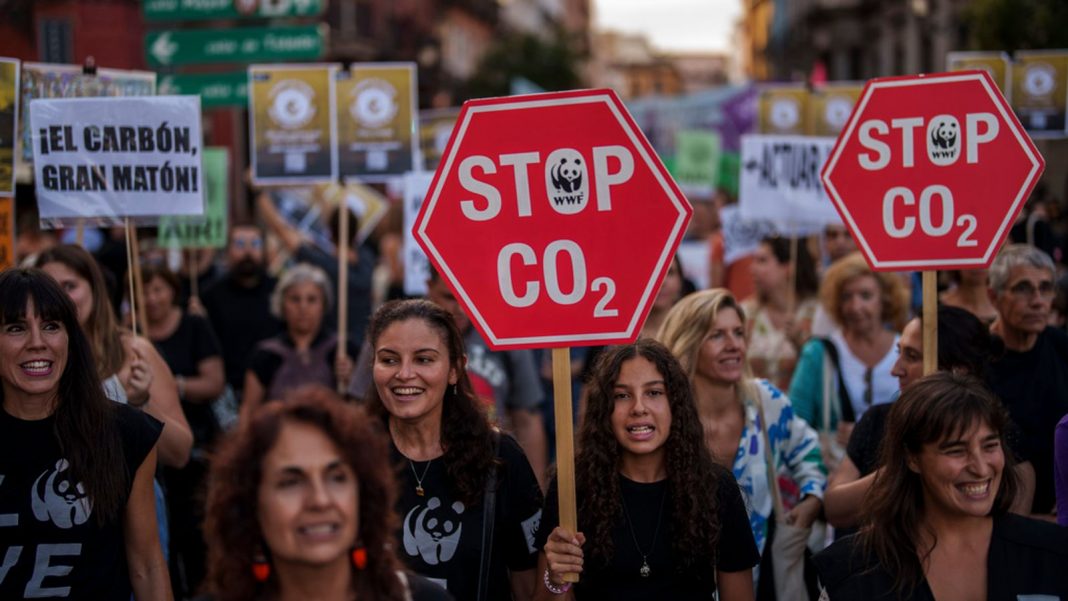September 2023 was not only the hottest September on record, new data has confirmed today, but it was warmer by a margin described by stunned scientists as “extraordinary”, “huge” and “whopping”.
It keeps the world on course for its hottest year ever, expected to be 1.4C warmer than before the industrial era.
The new record is just the latest to be shattered this year, following a record hot June, July and August, and joint warmest September in the UK.
Scientists are pointing the finger primarily at climate change, and warned of worse to come. But they also put it down to a warm weather pattern called El Nino, and natural changes in the weather.
The Copernicus Climate Change Service (C3S) confirmed today that in September average surface air temperatures globally reached 16.38C.
The figure is a significant 0.5C warmer than the previous warmest ever September, in 2020, and is the biggest jump in temperature seen since at least 1940.
The margin has astonished scientists.
Record heat in September smashed previous records by a “huge” 0.5C margin
“It’s huge,” said Professor Ed Hawkins, climate scientist at Reading University. “We shouldn’t be breaking records by this amount.”
Piers Forster – the interim chair of the government’s Climate Change Committee but speaking in his capacity as climate change professor at Leeds University – said variations between months each year are usually quite small.
“Therefore, breaking the previous September record by a whopping 0.5C is crazy and shows something really bizarre is going on,” he said.
Dr Samantha Burgess, deputy director of C3S, said the “unprecedented temperatures” for September broke records by “an extraordinary amount”.
With two months until the next global climate talks, COP28 in Dubai in December, the “urgency for ambitious climate action has never been more critical”, added Dr Burgess.
The sea was hot too
Today’s findings are based on billions of measurements from satellites, ships, aircraft and weather stations around the world.
They confirmed that temperatures on the ocean surface had also soared in September, reaching the second highest ever, behind only August 2023.
Scientists have also been alarmed by the record low sea ice cover in Antarctica, which C3S confirmed has continued into September.
It is fuelling worries that climate change is finally catching up with the continent once thought to be relatively shielded.

Source: National Snow and Ice Data Center
Why was September and this summer so hot globally?
Part of the heat has come from a natural switch in the tropical east Pacific around July from a cool El Nina phase to a warm El Nino one, influencing temperatures around the world.
But while a combination of factors are at play, including natural variability from year to year, scientists believe the main cause is climate change.
Prof Forster said: “We think it’s caused by a combination of factors, principally greenhouse gas emissions being at an all time high.”
Global temperatures have warmed by around 1.1C since the pre-industrial era due to human activity, according to UN’s Intergovernmental Panel on Climate Change.
“What we’re seeing this year is there is a bump on top of that,” said Prof Hawkins, which could be “due to other factors such as El Nino or other weather patterns”.
“But the largest component by far is the fact that we have added so much greenhouse gases in the atmosphere from burning fossil fuels.”
Please use Chrome browser for a more accessible video player

2:40
UK climate deaths since 1990
Prof Hawkins said month after month of record heat was not necessarily a sign the climate crisis was accelerating, but a taste of the future under continued global warming.
Extreme weather events this summer – like fires in the Mediterranean, floods in New York or heatwaves in the UK – will become “more frequent and sadly become normal”, he added.
He said climate change is exacerbating flooding because warmer air can hold more water, meaning rainfall is heavier.
It also makes naturally occurring heatwaves even hotter, and it fuels the hot and dry conditions that allow wildfires to spread rapidly, even if the fires were sparked by something unrelated, he added.
Watch The Climate Show with Tom Heap on Saturday and Sunday at 3pm and 7.30pm on Sky News, on the Sky News website and app, and on YouTube and Twitter.
The show investigates how global warming is changing our landscape and highlights solutions to the crisis.







